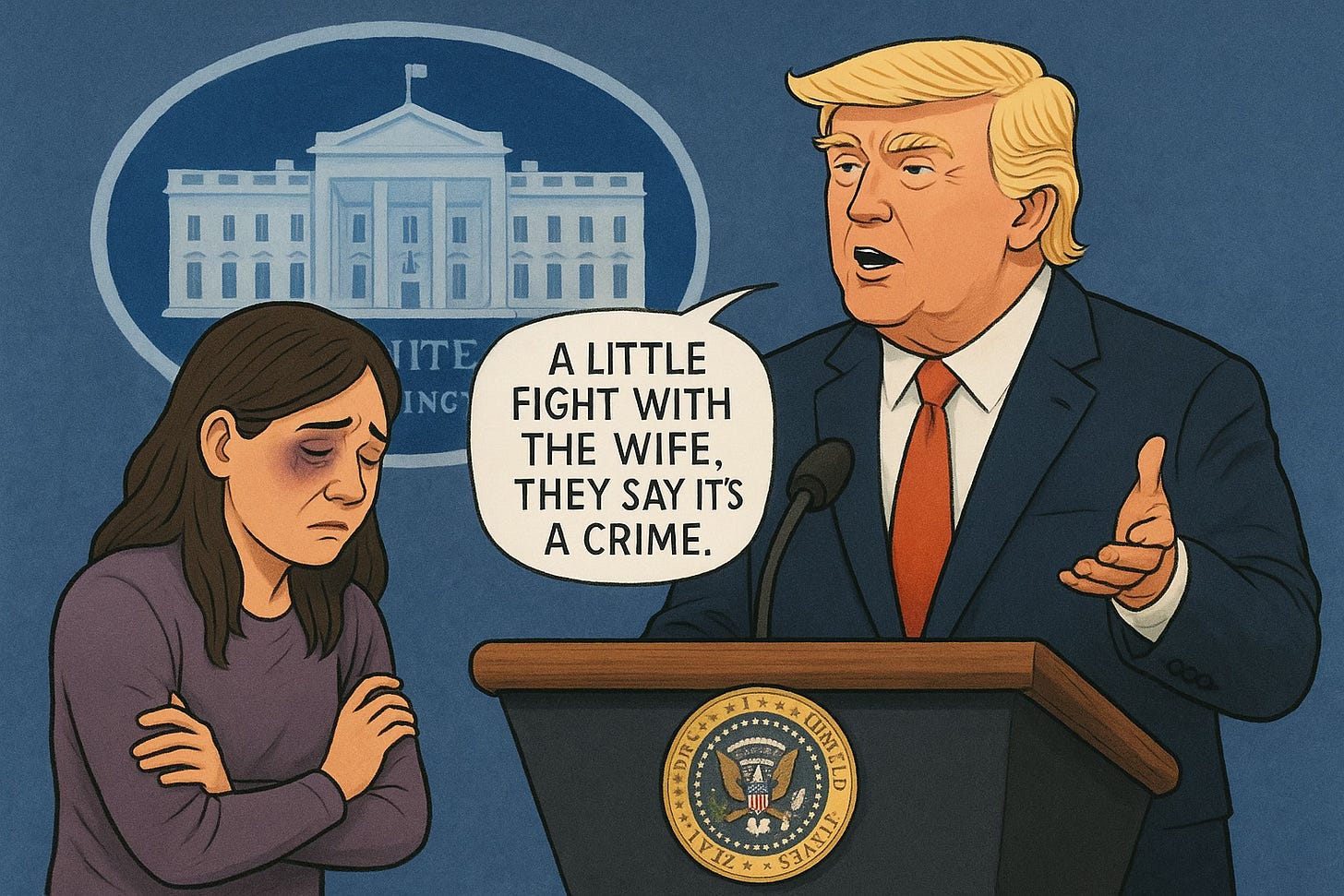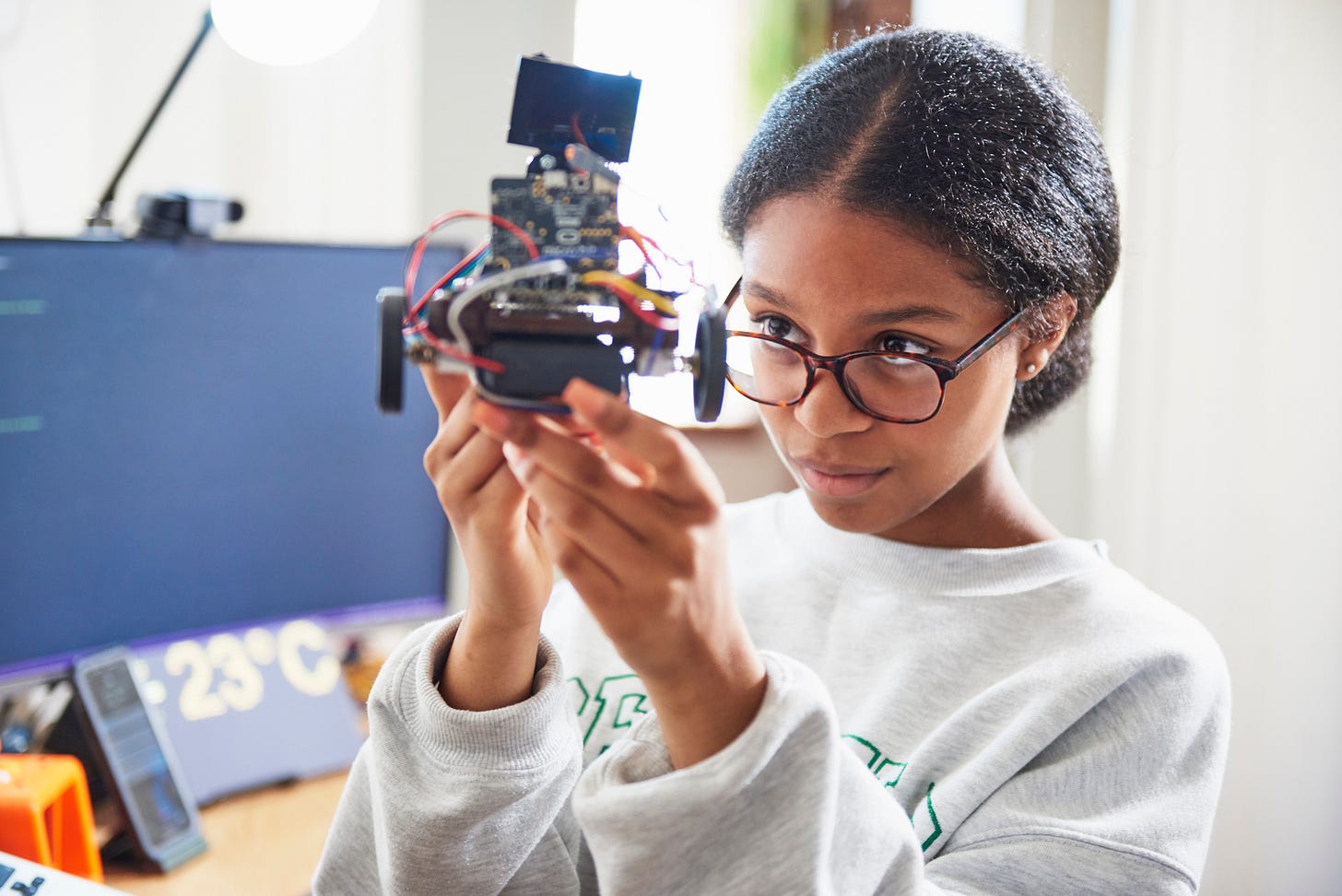How the Right is Abusing Charlie Kirk & Trump Dismisses Domestic Violence as Not a Crime
September 16, 2025
What I’m Discussing Today:
Kareem’s Daily Quote: A look at what we mean by parental love.
How the Right Is Abusing Charlie Kirk: Kirk’s tragic murder has been turned into a macabre theatrical production designed for political gain—by his “friends.”
Notes from the Sidelines: The NHL preached inclusion. So why has it got into bed with Donald Trump?: A sports league once again abandons all courage and morality for a few bucks.
Condemned by Their Own Words: Trump Dismisses Domestic Violence: Beating a woman is no longer a crime if it helps skew crime statistics.
Kareem’s Video Break: Can you better these kids in a simple visual test?
Magical Moments in Sports: Dogs on surfboards looking more balanced than I am walking across the room.
The Dixie Cups Sing “Iko Iko”: This enigmatic song still charms, even though most people have no idea what it’s about.
Kareem’s Daily Quote
Children are the living messages we send to a time we will not see.
Neil Postman (1931-2003), American author, media theorist, cultural critic
One of the burdens of aging is looking back on one’s life and pondering all the things you wished you’d done better in your relationships. The older you get, the longer the list. The insensitivities, the indifferences, the cruelties. For most people, myself included, the number-one item on that list is thinking about all the ways you could have been a better parent. For many of us, it doesn’t matter how well the kids turned out or how much they love you now; the mind drifts to those moments when you could have been more understanding, less intractable, more supportive, less judgmental. These may be moments your children don’t even remember, but you do.
One of the reasons this has been on my mind lately is because of all the memoirs I’ve read and TV shows and movies I’ve seen that include horrible parents who are either emotionally or physically abusive, or both. Yet, when confronted with their lousy parenting, they usually all say the same thing, “I loved them the best that I could.”
I hate that phrase. It’s self-aggrandizing and a completely inaccurate use of the word love. What they felt may have been some oily witch’s brew of obligation, power, affection, fear of growing old alone, and need to fit in with society. But it ain’t love. Love isn’t molding children to fit your vision: it’s supporting them in their own quest for identity. It certainly isn’t abandoning them if they aren’t obedient clones.
It’s loving them the way they need to be loved, not the way you need to show love.
I’ve been thinking a lot about parents who refuse to immunize their children because of their ignorance of the science of vaccines. They may otherwise be loving parents, but their willingness to embrace their own ignorance rather than find out the truth isn’t love. It’s laziness. It’s neglect. Parents of daughters, who support a president accused by at least 28 women of sexual misconduct and who a judge said was a rapist (“Judge clarifies: Yes, Trump was found to have raped E. Jean Carroll”), are sending a message to their daughters that you support rapists and a message to their sons that rape is okay. To not understand that is not good parenting, no matter how many books you read to them or how often you took them to Disneyland.
Parenting isn’t just about food, shelter, and a bunch of moral teachings: it’s also about the Big Picture of showing them what you stand for. It’s about proving to them that you love them enough to do the hard work of searching for truth, not just doing whatever you’ve been told by parents who’ve done whatever they were told by parents. A parent who encourages the elimination of environmental safeguards that put their children’s health at risk isn’t showing love. They are blowing cigarette smoke in their kids’ faces.
“Children are the message” all right, but if they are poorly educated due to school standards being dropped, if they are unhealthy because of a lack of vaccines or a polluted environment, if they are misogynists or racists—then what is the message?
Though these reflections on our past failures may be painful, they are actually good news. They mean we’ve learned, we’ve grown. Though we may not be able to undo what is done, we can bring this new emotional sensitivity to our children now—and to their children. And to everyone else we encounter. We are still parenting, even if we’re not related.



